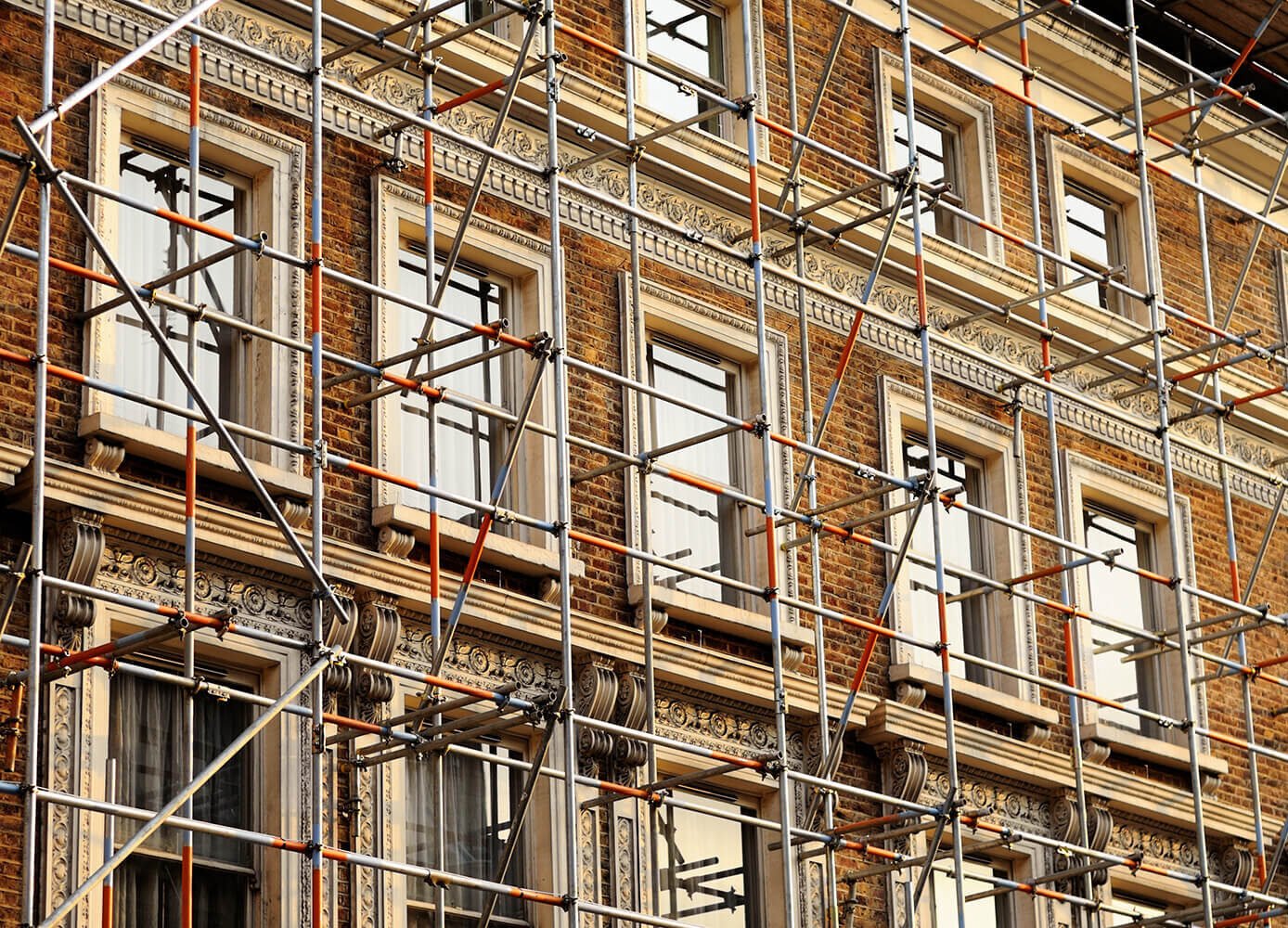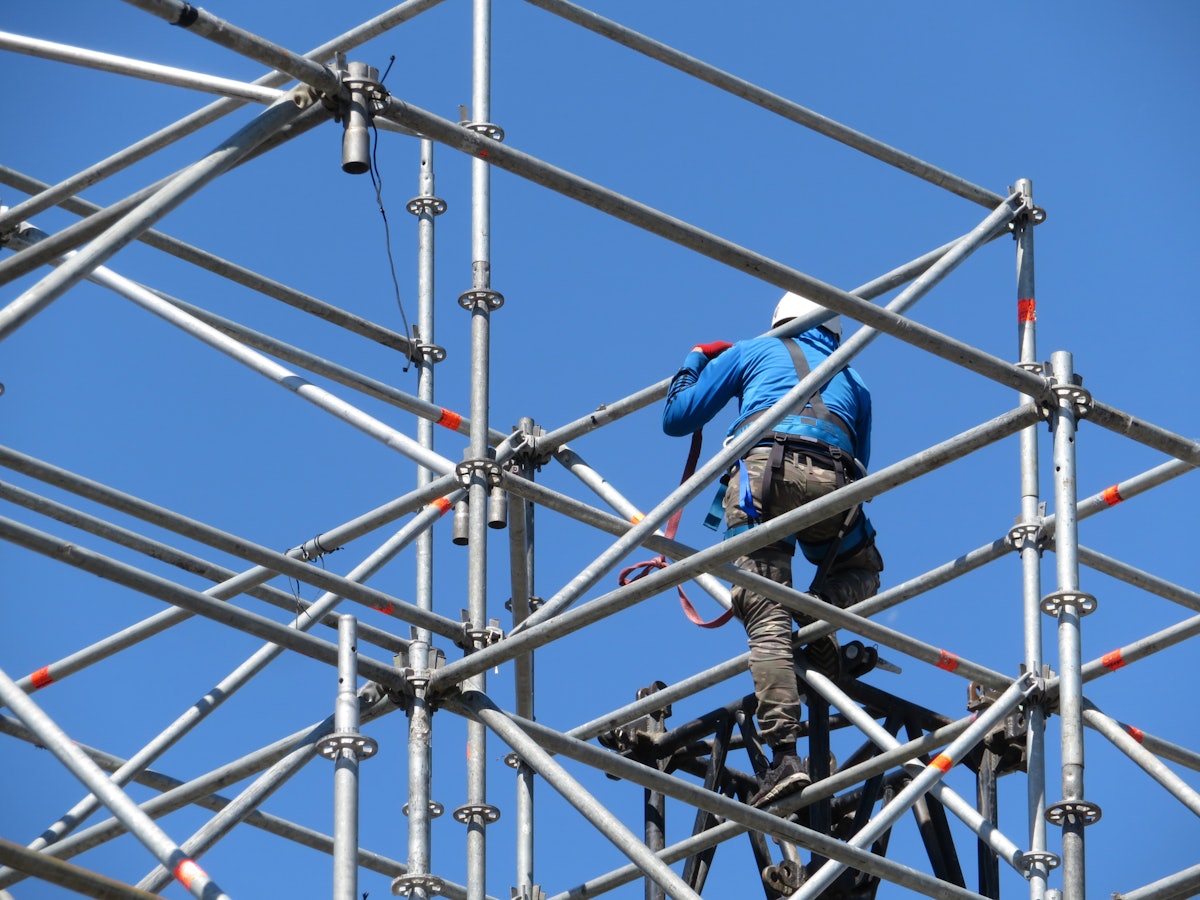Affordable Domestic Scaffolding for Every Home Renovation Project
Affordable Domestic Scaffolding for Every Home Renovation Project
Blog Article
Checking Out the Different Kinds of Scaffolding Used in Building And Construction Jobs
The construction sector relies greatly on various types of scaffolding to fulfill particular task demands, each offering distinct benefits and applications. Conventional structure scaffolding offers a strong foundation for basic jobs, while suspended scaffolding is necessary for work on skyscraper frameworks.

Standard Framework Scaffolding
Conventional structure scaffolding is just one of the most widely used techniques in the building and construction market due to its robustness and flexibility. This system includes horizontal and vertical frames that are put together to develop a steady platform for workers and products. The primary components consist of upright blog posts, straight ledgers, and diagonal dental braces, which with each other give a strong framework that can support considerable lots.
One of the essential advantages of standard frame scaffolding is its flexibility to different building tasks, ranging from domestic structures to large industrial frameworks. The modular design permits easy setting up and disassembly, making it effective for both long-term and short-term tasks. In addition, the system can be customized in elevation and size, suiting different structure layouts and site problems.
Safety is extremely important in scaffolding applications, and standard structure systems are furnished with guardrails and toe boards to prevent drops and make certain worker protection. Normal inspections and adherence to safety guidelines are critical in maintaining the integrity of the scaffold (Scaffolding). In general, standard structure scaffolding remains a fundamental option in the building sector, giving a dependable system for labor and enhancing general job performance

Suspended Scaffolding
Put on hold scaffolding supplies a special option for building projects that require access to raised surfaces, particularly in scenarios where traditional structure scaffolding might be impractical. This sort of scaffolding is usually suspended from the roof or top levels of a structure, utilizing a system of pulleys, ropes, and systems to produce a functioning room that can be changed to numerous heights.
Among the key advantages of put on hold scaffolding is its flexibility. It can be conveniently repositioned or decreased to fit changes in construction requirements, making it excellent for tasks such as home window installation, frontage work, and upkeep on high-rise structures. Additionally, the very little impact of suspended scaffolding permits better use ground space in city environments, where area is typically minimal.
Safety is a crucial consideration in the use of suspended scaffolding. In general, put on hold scaffolding supplies a reliable and reliable remedy for accessing hard-to-reach locations in numerous construction circumstances, boosting both efficiency and security on site.
System Scaffolding
System scaffolding, typically considered as a modern-day solution in the scaffolding industry, is composed of pre-engineered elements that can be swiftly constructed and adjusted for different building jobs. Scaffolding. This type of scaffolding is characterized by its modular style, which permits flexibility and performance on work websites, suiting architectural demands and different heights
Generally made from high-strength steel or aluminum, system scaffolding provides enhanced sturdiness and stability. The parts include vertical blog posts, straight ledgers, and diagonal braces, which adjoin safely, guaranteeing a robust structure. The design frequently includes standardized fittings, streamlining assembly and disassembly processes, thereby decreasing labor time and costs.

Rolling Scaffolding
Moving scaffolding is a functional alternative to conventional fixed scaffolding, created for flexibility and convenience of usage on construction sites. This sort of scaffolding contains a platform supported by structures with wheels, enabling workers to quickly transfer it as required. The mobility feature substantially improves efficiency, as it minimizes downtime related to dismantling and assembling dealt with scaffolding.
Usually built from lightweight materials such as light weight aluminum or steel, rolling scaffolding offers a tough yet mobile option for projects calling for constant repositioning - Scaffolding. It is especially beneficial in tasks such as paint, drywall installation, and electrical job, where accessibility to different heights and places is needed
Safety is paramount in rolling scaffolding layout, with attributes such as locking wheels to prevent unplanned motion when being used, and guardrails to shield workers from falls. In addition, numerous models are flexible in height, accommodating different project demands.
Cantilever Scaffolding

The style of cantilever scaffolding commonly involves using arms or braces secured to a building or structure, making it possible for the platform to prolong external safely. Safety and security is paramount; thus, these scaffolds must be crafted to hold up against environmental conditions and various loads. Regular inspection and maintenance are necessary to ensure structural honesty and employee security.
Cantilever scaffolding is favored for its adaptability and effective use of space, making it a popular selection in city settings where room restrictions prevail. It assists in simpler accessibility to high elevations, ultimately adding to the general efficiency of construction projects. Similar to all scaffolding types, correct training and adherence to security standards are critical for employees utilizing cantilever scaffolding.
Final Thought
Finally, the diverse kinds of scaffolding utilized in building and construction tasks each offer distinct functions customized to certain website needs. Conventional frame scaffolding offers security, while put on hold scaffolding uses adaptability for raised tasks. System scaffolding helps with fast assembly, and rolling scaffolding improves flexibility for varying job settings. Cantilever scaffolding efficiently resolves obstacles in metropolitan setups. Understanding these scaffolding kinds is necessary for optimizing security and performance in construction, inevitably adding to the successful conclusion of tasks.
Traditional framework scaffolding gives a sturdy foundation for general tasks, while suspended scaffolding is crucial for job on high-rise frameworks.Moving scaffolding is a functional choice to standard fixed scaffolding, designed for movement and convenience of use on building and construction websites. As with all scaffolding kinds, appropriate training and adherence to security criteria are crucial for workers utilizing cantilever scaffolding.
Conventional frame scaffolding provides stability, while suspended scaffolding offers versatility for raised tasks. System scaffolding facilitates fast setting up, and rolling scaffolding boosts wheelchair for varying work environments.
Report this page